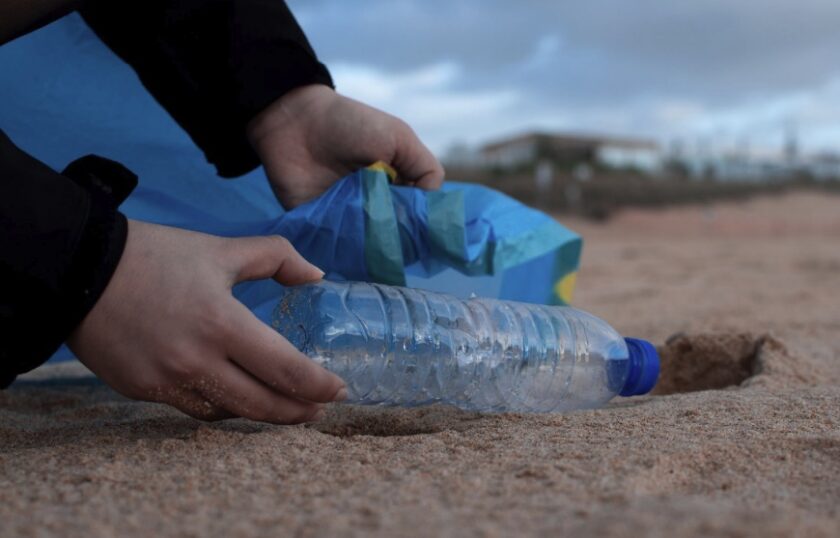Calls grow for urgent action as drinks litter plagues 99% of Welsh shores

New data from the Marine Conservation Society has revealed that plastic continues to dominate beach litter, with single-use items found on 99% of beaches surveyed in Wales in 2024.
The figures come from the charity’s annual Beachwatch programme, which mobilises volunteers across the UK and Channel Islands to clean beaches and record the litter they find.
In Wales, 1,073 volunteers took part in 119 surveys, dedicating 1,466 hours to clearing rubbish from beaches and helping document the extent of the pollution.
The 2024 findings show a 4% increase in beach litter compared to the previous year, with an average of 120 items recorded per 100 metres of coastline.
Across the UK, plastic made up all of the top five most commonly found litter items. Over 160,000 single-use plastic items were collected, marking a 9.5% rise from 2023.
Campaigners say the figures highlight the need to move away from throwaway habits and towards a circular economy, where products are designed to be reused, repaired or remade.
Drinks-related litter was found on 99% of Welsh beaches surveyed in 2024. Although this represents a 24% decrease on the previous year, the volume remains significant. Glass bottles were found on 49% of beaches and metal cans on 61%. Inland litter picks recorded plastic bottles and lids on 91% of sites.
The findings come just months after the Welsh Government confirmed it would launch its own Deposit Return Scheme (DRS), rather than join a joint UK-wide system. The scheme, planned for introduction by October 2027, is expected to include reusable options and a wider range of materials.
The Marine Conservation Society says its 2024 Beachwatch data “evidences the urgency of introducing DRS” and calls for schemes to include items like glass and Tetrapaks, and to support a shift toward reusable and refillable packaging options.
Sewage-related litter remains a persistent problem, especially wet wipes, which are often flushed rather than binned. A total of 26,458 wet wipes were found among the 90,294 sewage-related items recorded in 2024. While UK governments have announced a ban on plastic in single-use wet wipes, the charity is calling for swift implementation and further measures to reduce this type of litter.
Fishing-related litter also increased in every UK nation. On average, 16 fishing-related items were found per 100 metres of beach — a 33% increase from 2023. The Marine Conservation Society is calling for circular solutions for fishing and aquaculture gear, as well as free, standardised waste facilities at ports and harbours.
In Wales, cigarette litter saw a steep 33.5% increase, with stubs recorded on 65% of beaches surveyed. The charity is advocating for a ban on single-use plastic filters and other smoking-related litter, including disposable vapes.
The report concludes that reducing marine litter will require targeted, region-specific solutions, continued policy development, and public involvement through citizen science initiatives like Beachwatch.
[Photo: Marine Conservation Society/Marta Ortigosa
Spotted something? Got a story? Send a Facebook Message | A direct message on Twitter | Email: [email protected] Latest News









